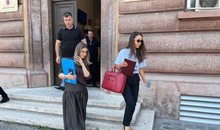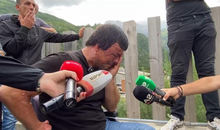
 Flash News
Flash News
Theth action, resident in tears: I built on my land with my life's expenses, the state should not destroy it
Directors targeted! After Fier and Durrës, Rama arrives in Elbasan
Name/Identification of the 23-year-old found dead near Shkopet Lake
IKM action in Theth, residents come out in protest
Reported missing by his father, 23-year-old found dead near Shkopet lake
BBC World Questions (full script) / The Rama Government badly exposed for an audience of tens of millions English speakers

BBC World Questions, was last Tuesday in Tirana to talk about Albania's problems. One of the first concerns that the program created was that the real opposition was not represented on the panel of four or was 'represented' by Lulzim Basha, who no longer heads a political party, but a group of few people that he calls the "Euro Atlantic Democrats." The government is represented by the Socialist MP Lulzim Krashi. In contrast, civil society is represented by Edlira Cepani, simultaneously one of the exponents of Adriatik Lapaj's new party, "Zgjidhja" (The Solution), and Fiori Hoxhaj, a 19-year-old activist.
Although the language of the two activists was mostly wooden, without mentioning concrete problems of Albania today, adhering to a 'politically correct' discourse, which leans towards the ears of internationals more than Albanians, or speaking al grosso modo; even though the opposition was represented, unfairly, by Lulzim Basha, it was the attitudes of the audience, which despite the time limit - less than one minute for intervention or questions - managed to herald what is happening in Albania. A government that does not bear responsibility but talks about the responsibilities of previous governments, rampant corruption, government involvement in crime and corruption - the so-called narco-state, depopulation as a result of bad policies, lack of hope, etc., became the main tone of the debate.
Within this frame was also the moderator of the debate, Johnny Diamond, who, in the introduction, mentioned the fact that "The political system here is polarized and immersed in accusations of corruption. There are problems with essential public services such as education and health care. Outside its borders, Albania has become known for its organized crime gangs involved in everything from cocaine distribution to human trafficking."
Politiko.al
FULL ENGLISH SCRIPT
This is the BBC World Service. I'm Johnny Diamond, and welcome to Albania in Southeastern Europe and BBC World Questions, the programme that puts people and their questions right at the heart of the debate. We are in the capital city, Tirana.
This is a beautiful country with a breathtaking Mediterranean coastline and a mountainous forested interior. Once upon a time, Albania was sealed off from the outside world by its communist rulers. Now millions come every year to explore and enjoy its beaches and mountains, wildlife and rivers. The current population of just under two and a half million is down a third from the 1990s and that number continues to dwindle as many people leave for better opportunities and work abroad. The political system here is polarised and mired in allegations of corruption.
There are problems with essential public services like education and healthcare. And beyond its borders, Albania has become known for its organised crime gangs involved in everything from cocaine distribution to people smuggling. When communism collapsed here three decades ago, the country was in ruins. It has made enormous advances in those years, overcoming much adversity. But huge challenges remain, something our large and lively audience here is very aware of.
We're in the heart of Tirana, just a stone's throw away from the Prime Minister's office and to try and answer the many questions our audience has, I'm joined here on stage by a panel of leading politicians, lawyers and campaigners. They are Lavdrim Krasi, a Member of Parliament for the Governing Socialist Party. Lulzim Basa, the former Minister of the Interior, now leader of the newly created opposition party, the Euro-Atlantic Democrats. Edlira Cepani, a lawyer and human rights activist. And last but not least, Fiora Hoxhaj, at 19, our youngest panellist, and she is a youth and women's campaigner.
Welcome to you all. Let's go to our first question from the audience, and it comes from Valbona Haletaj. Thank you very much. How can you convince a 20-year-old today to think of a future in Albania at a time when all European countries and other continents are giving us excellent opportunities for a safer future? Valbona, thank you very much indeed.
The question, how can you convince a 20-year-old today to think of a future in Albania at a time when all European countries and those further abroad are giving excellent opportunities for a safer future? I should say we had by far the most questions on the topic of migration. As I said in the introduction, the population has been shrinking for three decades, particularly amongst young people.
I would love to hear from the governing socialists the answer.
Lavdrim Krasi: On the question, of course, we have to put some context into what has happened to Albania for the past 34 years now, but also for the previous 50 years before that, because 50 years, as you touched upon earlier on, we are a sealed off country from the rest of the world. But then once we came to the European family, as we call it, there was a huge desire for people to look for new opportunities and to emigrate abroad. We had huge waves of mass migration. I'm one of those, for example, who was in the United Kingdom for many years and decided to return to Albania.
However, what is important for us as a country is to create opportunities for, one, for people to remain here in the first place, and for those who would like to go abroad legally, gain experience and come back, the doors are open for that too. The question, how can you convince a 20-year-old today? Of course, it starts by providing or improving public services.
Look, Jonny, 10 or 15 years ago, and this is not trying to score political points here, but Albania was a depressing country. It had a very poor infrastructure. It had a collapsing or collapsed education system and other public services. The way in which we can convince young people to remain in Albania is by improving our education system, is by improving our public services, the way in which we do them, but also the standards.
Being a British Albanian, of course, for me, Britain is one of the countries with whom we should have a special relationship, and we have been doing great work, for example, in the past few years, mainly in the north of the country, where most young people leave to come to the United Kingdom, but also to other countries. We have been doing a lot of work with the British government through the British Embassy in convincing and improving people's lives so that they are convinced themselves to remain in Albania.
Diamond: Okay, thank you. Edlira Cepani, lawyer, human rights activist. How can you convince a 20-year-old today to think of a future in Albania?
Edlira Cepani: Speaking as an activist, I would say that it's really difficult. Albania is not in the best of its conditions in the last 30 years, but I will tell you the experience that I have. I was born abroad, I grew up abroad, I did my elementary school, I did high school abroad, I studied abroad in my university, and after all those years, after more than 25 years, I decided to come back and live and work in Albania.
Why? Because when you live abroad, you understand that, especially European countries, developed countries, they are very structured. If you really want to make a change, you should go in a dynamic country, and Albania is a dynamic country, where your change is easier to make. We see that sometimes it's difficult for young people to strive and to work because the system is suffocating them, either the economy or especially politics, which is the biggest problem that we have in Albania.
But here, there is a possibility to make a change, and it's a possibility to contribute more than you can in any other country. And I would say that we have an expression in Albania, I wouldn't know how to translate it, that your place is in your country. There is, of course, an attraction, you feel better when you do the contribution in your country. But on the other side, I would say that politics hasn't done enough for young people in these 34 years, and it's not doing enough. If we want young people to stay in Albania, we need to give them opportunities, opportunities that are related to good education, that are related to better work conditions and better possibilities and opportunities to strive in their different professions. And on the other hand, it's very important to understand why people want to leave the country.
And there are three main reasons that people leave the country, not only young people, but now we're having professionals leaving the country. One is lack of education, like the education system is not the best one, because there hasn't been invested. We have the lowest percent of GDP budget dedicated to education in the region. The second one is the health system. If we have corruption in the health system, if we don't have the services that we need, it is a problem there.
Of course, we want to leave the country and find better conditions. So now that we've been traveling abroad, we know the different countries, we know what the standard is. And I would say that we have no problem to bring those standards in Albania, if we don't have the services that we need to do so.
Diamond: Okay, thank you very much indeed. Lulzim Basha for the opposition.
Basha: Thank you. It's great to be here. I was 19 when I left for my studies in the Netherlands, and the country was much more depressed than 15 years ago. Yet there was so much hope, so much expectation. People were hoping, were expecting to get somewhere.
And I agree, Mr. Diamond, the country has changed more than any other former communist country in this last 34 years. Yet now we are in the midst of a crisis of faith and hope in the country. And the reason for that is because the political system has failed the citizens, and in particular has failed the youth. It has done so by accumulating power for itself, opportunities for itself, benefits for itself at the cost of citizens, at the cost of society, at the cost of public services.
Three are the main problems of this situation. What people live for to the United Kingdom and to other countries in the West is opportunity, meritocracy, and equality before the law. These are the three basic absentees of the current Albanian society. At the end of July, the Socialist Party of Albania, in power for 11 years now, and parts of the opposition joined votes to go against a decision of the Constitutional Court of Albania to eliminate preferential voting, which would give opportunities to the young people to participate in politics, to run as candidates, to be able to offer their services to the country.
Diamond: Ladies and gentlemen, thank you very much. Fiori Hoxhaj, you are 19. You're perhaps best placed to answer this question. How can you convince a 20-year-old today to think of a future in Albania? You are staying. What would you say to them?
Hoxhaj: Well, first of all, thank you for the invitation. I would like to start, like you said, I'm 19 and I'm studying here in Albania. I was born and raised in Albania, in the heart of Tropoja, which is a very remote area of Albania, and everybody considers it as not something to be very proud of, but I turned it into an asset and now it's something that drives me forward. I think it's very important for us as young people to have hope.
So just investing in youth, I think it's the best solution for the problem that we're having, not just investing in them in money, but also in energy and time and finding interest in them and finding their potential and pointing out and giving them opportunities and trying to convince them by not just saying, but by doing. And the way that we can do this is only by getting together and creating hope for them, creating more opportunities where they can be even creating it themselves. They don't have to take it from somebody else.
Diamond: Thanks very much. I want to hear from the audience because we got so many questions on this issue of migration. It's such a big issue. I know for the country, let's start with the gentleman in black, sir…
I am Alfred Lela, political commentator and consultant: What's wrong with Albania, Mr. Diamond? I think you touched it on your opening remarks and it's the criminalization, but that's only a part of it and is the criminalization of politics. And it makes me sad to hear the representative of the government, Mr. Krashi, speak about the Hoxha times, or the 90s, but not speak about the times when his party is in government, the 11 years, 2013 to 2024. That is sad. I think he should speak about that those 11 years, not about the ancient times.
Regarding Mr. Basha's comment, Mr. Basha was also head of a Democratic Party, a very large party, the second largest party in Albania, and he had the chance to make possible what he says that others did not do. So I think the representative of both parties, are unfair on their statements.
Diamond: Thank you very much. Thank you very much for your comment. Any other thoughts on migration? Yes. In the blue shirt.
George: And I was quite surprised from the statement of Mr. Krashi, because he said that 15 years ago was like one of the worst time, one of the darkest time in Albanian modern history after communism. Yet again, six years or seven years ago, the mass migration from Albania started to happen. So like, I see inconsistency in the statement.
Diamond: OK, thank you very much. And madam.
I am Dorilda. In fact, my comment was, firstly, the opportunity given to youth is the most important thing that we need. If you gave us the opportunity after we finished the school to have a normal job, to have a normal salary and to have the opportunity to create our families here, of course, we will stay. And my comment extra was for Mr. Krashi, I might say that, of course, during the communism, we know that there have been a lot of issues when it comes to all of the countries that came from communism. But today we are talking 34 years after that. And I think that the democracy and lately the government right now haven't given a lot of security when it comes to the youth. So the issue is connected with the policies taken when it comes to economy, education and youth.
Diamond: Thank you. Thank you very much, madam.
Audience member: I'm one of the person that I will leave Albania soon because I don't get paid for what I do here. So I think the only solution is that the youth should get paid. You work more than 10 hours, for example, you don't get paid enough for your job. And of course, you get discriminated in your workplace. So these are the main problems I think that everybody is facing. And especially if you are a woman in Albania. So you don't find many, many ways to get and to give all the best from you.
Diamond: Thank you so much. Our second question comes from Kresnik: I'm 43. I've been hearing about joining the EU for 30 years now. What is the government doing to address this EU fatigue my generation is feeling? Thank you, Kresnik. Kresnik says he's been hearing about joining the European Union for 30 years. What's the government doing to address EU fatigue the generation is feeling? It has to be said, the country applied to join in 2009, it received candidate status in 2014. The talks only began in 2022. Edlira Cepani, lawyer and human rights activist, do you feel the EU fatigue amongst people? Do you get that same sense that Kresnik talks about, you've been waiting and waiting and waiting?
Cepani: It's interesting, some years ago, we did a survey, and 97% of Albanians, they wanted to get in the EU, and we still want it. And it's a pity to see that 30 years before, our slogan was, we want Albania like Europe. And it's such a shame that we are here 30 years later, and we still want Albania like Europe. And if there is anyone to blame for this is politics. Because what we see is that politicians in general, they talk the talk, but they don't walk the walk. Because why don't they want to be part of the European Union?
It could be really easy. Because there are some criteria, you need to do some reforms, it could be really easy. The problem is that, especially in Albanian politics, they don't want to be part of Europe. Because what does it mean? It means more transparency, it means more accountability, it means less corruption. And this is why we are blocked. We are not blocked because of Europe, we are not blocked because of the Albanian people. It's not our problem, it's the problem of politics. So what can we do? Let's get together and improve politics. How can we do it? We can do it starting by asking for more internal democracy inside the...That is where everything starts.
Diamond: Edlira, thank you very much indeed. Lavdim Krasi from the Socialist Government. Fairly firm words there from Edlira. It's a problem of politics.
Krashi: Well, it's not the Albanian government that gets integrated within the European Union. It's the country that gets in the European Union. Of course, the government has a role to play. The government has done, and I'm not talking just about the current government, but successive governments that we've had since 1991. Some have done more than others to make progress towards EU integration. Some have made more damage towards joining the European Union. Coming back to the current government, we are at a very good stage, actually. We are at a stage where we are awaiting our second conference with the European Union, where we start negotiating clusters, chapters. So we are closer than we have ever been.
Diamond: Do you think the political will still exists in Brussels to take Albania into the EU?
Krashi: Well, judging by what has been happening over the last few days only, it's the first time in a long while that we have a commissioner dedicated to EU enlargement. So that comes as good news, not only to Albania, but also to the other Western Balkan countries and friends that we have. But coming back to Albania, there's a lot that has been done. There is probably a lot more that needs to be done, both by governments and the people. That includes the opposition as well. That includes every citizen in the country that needs to do more. Because at the end of the day, integrating within the European Union is a question of standards. Our GDP 12 years ago, 15 years ago, if you like, was about £10 billion. Today, it's about 23. That tells you a lot.
Diamond: I'm going to go back to our questioner, if I could. You clearly have doubts. You feel the fatigue. Do you still think there is momentum towards the European Union from the country?
Kreshnik: At the moment, I think that, as Mr Karasi said, a lot of efforts are being done and we are in the best position that we were in the past years. More needs to be done. Do you think you will one day be a citizen of the European Union? Of course. I personally believe that it will happen sometime in the next seven or ten years. But the thing is that, as you get older, time goes faster. So, can't wait more. Something philosophical there to end us with.
Thank you very much indeed. I'm going to move on to our next questioner. It's Livia. Livia, your question.
Livia: My question is on tourism. How can we promote eco or agro tourism when there are no laws in place for a percentage of green public spaces for every neighbourhood? It seems hypocritical when tourists come for relaxing, natural scenery and tradition while facing only pollution and building construction, especially along our beach coast.
Diamond: Thank you very much, Livia. It's worth noting tourism is now about a quarter of national output here in Albania. It's really taken off. And you see everywhere building for tourists and the attempts to exploit tourism wherever. In particular, I think the hopes are in the north of the country, aren't they? Fiori Hodjaj, a youth activist. How do you think that eco and agro tourism should be promoted and do you think there needs to be more protection when it comes to development?
Hodjaj: Well, I totally agree with the question. It's very needed, and especially in our north. As I said before, I'm from Tropoja and Valbona is only a 30-minute away drive from where I live. So going there every weekend and seeing all these new buildings being built is not a very pleasant view to see. There are many buitinas, we call it. There are guest houses with wood, and they're so good for the environment, but they also are going very well with the nature. So you go in the window, and instead of looking at the mountain, you see a very big building that doesn't really go well with the nature. But I think the way that we can help this is by building more policies and reforms. Our government is building reforms in law and law enforcement. We can also build some reforms on eco-tourism.
Diamond: Lavdrim Krasi from the government…
Krasi: The question about controlling the growth of tourism and the need to do that and to promote the natural side of Albania. Well, first of all, it's very good news for every Albanian that last year on this, last year we had 10 million, we received 10 million, and this year we are on course to receiving 13 to 14 million. So that's a very good development for Albania. There needs to be better planning services. It doesn't take a genius to work out that when you travel around Albania, the way we manage our own resource, the only facility that we have is our land. And that doesn't get bigger, because that is what it is. And we need to manage it in a way that it benefits the entire population. That means legislation changes and amendments, but also local government.
Diamond: Thank you very much indeed. I'm going to go back to Livia if I can. You asked the question.
Livia: Yeah, a little bit of background. I'm an Albanian who left the country in 1998, actually 1999. I was very little, and I decided to come back home two years ago. I invested in a small apartment near the Durres area. I won't say exactly where. And originally there was some green space, but months later I was conquered by three building companies, two of which decided to just surround without any standards. No regulations whatsoever. The work was still continuing over the summer. So it has made it impossible for me to live in whatever little investment I could make, and I have to go back. You know, I don't want to live in Tirana. I'm third generation in Tirana, but it's all concrete. And the reason I came here is because the spirits of my ancestors were calling me here. And the Albanian soul needs life, and concrete is not life.
Diamond: Thank you, Livia. Thank you very much. Thank you. We're going to leave it there. We're going to pause for the news. We'll be back with our Albanian panel and our audience for more BBC World questions very soon.
APPLAUSE APPLAUSE
Diamond: And let's go. Let's go to our next question, and it comes from Mal Mati.
Enis Elezi: This is actually not Mal Mati, this is Enis Elezi and I'm asking this question on behalf of Mal Mati. Will enabling the diaspora to vote at the upcoming 2025 parliamentary elections result in political change, ousting of the corrupt political elite?
Diamond: Thank you very much indeed. Question, will enabling the diaspora to vote at the upcoming 2025 parliamentary elections result in political change and the ousting of the corrupt political elite? There's between one and two million Albanians living abroad. Very often the people who most want change are the ones who vote with their feet. Let me start with our socialist MP, governing socialist MP, Landrim Krasi. Do you think that those who live abroad should be allowed to vote abroad?
Krasi: Of course. It is the main reason why I came in the Albanian politics. Having the Albanians that live abroad vote for elections in Albania is a good thing. As I touched upon earlier, they're already integrated in a democratic or more democratic, I should say, societies in the countries where they live and their vote will be a what we call in Albania or what I call a pure vote. They will vote based on what they think that the political parties can offer to the electorate.
My countrymen, we know that in Albania political parties, that includes my party, shy away sometimes from having programs, from having what we call manifestos. That is not the case in other countries and I think one of the things that the diaspora voting that they will do is to change the mentality of our politicians because we would not have to respond. It's only a month old that this new amendment to the electoral code to the legislation was passed allowing diaspora to vote and I can already see and hear discussions that I haven't heard for the previous three years.
Diamond: Thanks very much, indeed. Lulzim Basha from the opposition, on the principle of the diaspora, those outside the country voting. Do you think it will change politics and why?
Basha: No, I don't. We have a few little proposals since 2016 which would make the vote for the diaspora effective so every Albanian, every citizen of the Republic of Albania of voting age could exercise that right without government interference. This proposal that has now become law does not ensure that this government is all about control. It will freak out if the vote of the diaspora will be outside its control. That's hence the proposal. You have to register in a special register, unregister from the civil registry and let's be fair, let's be straightforward.
A lot of Albanian citizens left the country to the UK to other countries because of dissatisfaction, deep dissatisfaction with the policies of this government. A lot of them do not have a legal status. How are they going to be able to do all these proposed procedures and still partake in the next election? The answer is simple, they will not.
Diamond: Forgive me, under the new system will people be able to vote outside the country in elections for the parliament?
Basha: If they unregister from the civil registry in Albania, if they register in a special register, if they trust the Albanian post to bring their votes and count them properly, yes. But these are three ifs that so far have been failed massively in previous elections by this government.
Diamond: Fiori Hoxha, what do you think of the idea of people voting outside the country? There are some who say you should be a taxpayer to be voting in a national election, you should have a stake in it. What do you think?
Hoxhaj: Well, I think what you said is right, but also I think it's very important that our diaspora has a voice. I've been talking to a lot of people who live abroad and I have a lot of cousins that live abroad and every time they come here for visiting home they get so frustrated. And I think that their vote would make such a huge difference in Albanians' reality, because they have such a different and open point of view which will change a lot of our policies and I think they would vote not only based on I've been a member of this party forever so I need to continue being it, I think they will vote based on who has the best programme.
Diamond: Thank you very much indeed. Edlira Cepani, a lawyer and a human rights activist. I suppose it's two questions, will it result in political change and will that change be sweeping away or at least pushing away some of the old system?
Cepani: We will see how it goes, it's the first time that we try it, but I've always said not only by vote but also by investing in Albania and by advocating for Albania I think that if a change comes to Albania it will come from the diaspora, because our people that are in the diaspora they really are connected to the country like few other countries and nationalities and they really have the eyes towards their country and they want to come back to invest in the country and to contribute for the country.
So I think it's very important and I think that the diaspora vote is the best example that if you advocate strongly for something it happens. When a couple of years ago started some movements that sent the right for the diaspora vote in the constitutional court, we started a movement one year ago that had as a pillar the diaspora vote, everybody would say that this legislative advocacy that you're doing is going to fail because the politics doesn't want the diaspora vote and it's true they don't want it, but we understood that by pressuring, by asking for more you get it.
So this was a very big legislative advocacy success that we achieved all together, young people working on one side, diaspora voting on working on the other side, activists here on the other side asking for more because they know that they deserve more.
Diamond: Edlira, thank you very much. I want to hear from the audience if I can on this topic, not necessarily about the voting from the diaspora but about the political system. We got so many questions about democracy in Albania. First of all you sir.
Florian: Yeah, I'm Florian and this question touches me very much because I'm from the diaspora so I would be very interested but I am against it and I'll explain you why. I meet and I know a lot of people that are in the diaspora that are Albanian and we tend to have small communities outside and to tell you the truth there's not very much interest and I would say information that gets easily through the diaspora. So what would happen, what I think and I'm not optimistic in that sense, is the vote will simply not be done or they will receive a call from someone in Albania asking them to vote for either one party or the other and do simply the favour. I don't think it's going to help either way. Diamond: Thank you very much sir, and then gentleman there…
Erges: Thank you. Albania now is a narco-state. We have four ministers involved in the transport of cocaine or cannabis. There is no democracy in Albania. Democracy is transformed here because we have the worst people in power.
Diamond: Okay I think you've made your point. Thank you very much sir. Thank you for your contribution. Madam.
Audience member: Yes I might start from the moment of let's not forget that the diaspora in fact is helping most of the Albanian families so I might say that their support, their financial support is giving them the opportunity to have a better life so I know that they will use this vote to share their opinion and it's going to be a great help if everyone would have, as it is in the constitution in fact, to have the right of vote.
Diamond: Okay we'll leave it there. Thank you. Thank you very much for your points. We're going to move on to our next question. Thank you very much for all your points there. I appreciate it. It comes from…
Florian: My question is simple. For my background I'm a person which was first revolutionary. I was in the front with the students but for 34 years we can see the corruption is going up. I want to ask the panel how can we tackle corruption in Albania?
Diamond: Thank you very much. A very simple question. It sounds like a very complicated answer I suspect. How can Albania tackle corruption? It is estimated that half of citizens participate in one way or another within corrupt practices and the EU accession report said there is an area of serious concern prevalent in many areas of public and business life. Lawyer and human rights activist Edlira Cepani, how can Albania tackle corruption?
Cepani: I think that corruption is fought in two different ways. The first one is of course enforcing the laws and enforcing the justice system and supporting the justice systems to do their job. We have the SPAC institution now. SPAC is the anti-corruption body. They are doing their job but they are really fought by politics and really pressured by politics not to do their job properly but they are doing their job. One is by I think increasing sanctions and serious sanctions to especially to corruption and high level of politics. We haven't had this before and we don't have laws like this. OK. And on the other hand, it's very important to to work on the on the population and on the perception of corruption. The worst thing that can happen with corruption is that it becomes a normal way of life.
Corruption does not make a society healthy. It kills the society in every possible way, because you can think that corruption can help you make a quicker profit or faster money. But as you are corrupted in your profession, that might be you are a teacher, you are a politician, everything. Also, the doctor feels like it's normal to be corrupted. And what happens? Happens that you don't have the the health system as it should be. So if you encourage corruption, then you will be a victim of it.
Diamond: Thanks, Edlira. Thank you very much indeed. Lulzim Basha from the opposition.
Basha: Let's start with political will. And clearly there is no political will to fight corruption. When you have your deputy prime minister at large, he has escaped the country because he is being sought by SPAC for corruption. When you have your minister of interior jailed for orchestrating a massive cannabis cultivation scheme in Albania, when you have your minister of health in jail for corruption with public health schemes, when you have your minister of environment jailed for corruption in a scheme of waste incinerators, you know, when you have four members of cabinet in jail, when you have at least a dozen members of parliament losing their mandate because they have been part of organized crime structures.
Some people would say the system is beginning to work. Yeah, I'm going to get there in a second. But when you have I'm talking about political responsibility, either you're part of it, which many Albanians, I dare say most of Albanians believe that the current prime minister is part of it. He's, in fact, the pinnacle of the system of corruption that sustains his power and this model. Whatever they believe. Or you're a fool. Yeah. Or you're a fool.
So lack of political will has brought the problem of corruption to a unprecedented level for Albania. And that is saying a lot. An unprecedented level, I would say, even for the Balkans.
Diamond: The question is, the question, how do you fight it?
Basha: How do you fight it? You have a you have a climate very similar to I don't want to stigmatize any country or any society. It's a mafia climate. You take anti-mafia measures. And we have proposed those. We have proposed vetting for politicians, annual checks of the assets of politicians, their family members, their associate, annual checks of what is called inappropriate context for the magistrates, inappropriate context of the politicians. Do they or do they not have contacts with bosses of organized crime? Do they or do they not cooperate with the underworld for the sake of their political power? Are they or are they not corrupt? Can they or can they not justify the wealth of themselves, their family members, their associates? This law has been sitting in Parliament since November 15. This proposal that we have put in.
There is no equality before the law. That's why we have proposed the removal of parliamentary immunity. That and first and foremost, total, unconditional support for the judiciary, for that part of the judiciary that was created to fight corruption. These are the ways to move forward.
Diamond: Thank you very much indeed. Lavdrim Krashi for the government. I mean, you've heard the accusations. I mean, not just from Lulzim Basha, but from the audience as well, that the government is part of the problem.
Krashi: So, of course, corruption has been an issue in Albania for the past 30 years. It's not an issue that suddenly appeared in a certain year because we were in power. It is a problem that has accompanied our democracy since the early 1990s. Now, in a democracy, the way to deal with corruption is by maximizing chances of minimizing it. This is how it started in 2013. It is the only party, the Socialist Party, is the only party that had it in its manifesto that it will create independent judicial institutions. And luckily for us, it wasn't easy. In the process, we actually lost some coalition partners, allies at the time. But we were determined to offer a new judicial system which is independent.
And it starts, I quite agree, with ending the culture of impunity. Somehow, politicians in Albania, both at national and local level, feel as if they are entitled to things. It is, well, Albania is one of those countries where if you're looking for rich or filthy rich people, you look into the political class. That is not how it should be. People who want to make money, they should do that in the private sector. Yes, of course, there are risks associated with that, but that is the way to become rich.
Diamond: Now Lulzim and Basha made several suggestions.
Krashi: Of course. For lifting parliamentary immunity. Yes. Would you agree with that? I agree, first of all, with setting up a new independent judicial system and supporting this judicial system. I don't want to go into party politics again here, but there are quite a number of political parties. Mr. Basha is one of them. However, it's very... I'm very pleased to hear him support the new institutions. But also, in addition to what was suggested, and those are all valid things that need to be looked at.
But also it's the responsibility of political parties to bring people, to present people to the electorate, to elect amongst them people with integrity, not people without, people who have spend it. And all those ministers that Basha mentioned who are either under investigation or in prison for corruption. For me, that's a sign of exactly what you said, that the new judicial system is working. In addition to a former deputy prime minister, to many former ministers and mayors, actually, but also an attorney general, I believe, is in prison as a result of corruption.
So this is a good sign, in my opinion, that the judicial system is moving towards becoming independent. I'm not saying it's completely independent. Look, Johnny, this country, it's only 30 or so years of democracy, but it looks as if it's really, I'm starting to agree with my colleague now, centuries old, because the corruption, the phenomenon of corruption hasn't been fought hard enough and it is starting to bear fruit now.
Diamond: Thank you very much indeed. I want to go back to our questioner, Leonard. You asked how can Albania tackle corruption? You presumably think there is a serious problem.
Leonard: What I can say from after 34 years history of different politicians in high position, they are saying different things and when they are coming on the top, they are doing different things. I believe with my heart that fighting corruption is a big will. And we have here corruption on vote. And we have the common corruption that we face daily. And nobody wants here to fight it because the people which are on top are trying to profit from it. If the system is like this, the strong guys are winning always, but the others are losing, all of us.
So we have to think as community, as people, to choose better our politicians, to give our vote wherever and to vote for our future, not to vote to continue something like this. At the beginning, I cited this figure from a survey that around half of Albanians were in one way or another involved in corruption, either having to give a bribe or call in a favor.
Diamond: Is that your experience, that there is a day to day ground level of corruption? Does it? Is that how it works? And how does it manifest?
Leonard: Your feeling is right. We sometimes we don't want to say it, but for every one of us, if you want to solve something and if you want to do it soon, you have to pay. If you don't pay, you may not never get the service. Of course, there are some improvements. Thirty four years.
Diamond: So I want your one suggestion from our panel on how to make Albania look better in front of the world. And let's not forget, lots of countries have image problems and lots of countries change as well. Edlira Cepani, what can we do to make Albania look better in front of the world?
Cepani: The one million dollar question. You see, make it look better. We already are doing, we are very good in PR. But I think that it's important to make it be better. And not for the world, but for Albanians. And I think that making Albania great again, I think we should undertake a few steps. And the first step, in my opinion, is to improve politics. And why? Because one of the biggest problems that we have is related to democracy and to the power of citizens to have their voice in what happens in the country.
What is the problem? The problem is that we don't have internal democracies inside the political parties. Not having internal democracy inside the political parties, we do not produce the right politicians and the right political parties that tomorrow or today govern the parties or that have been governing the country before. So one is internal democracy and we need to work on that. And the other one is strengthen the voice of citizens. How? Through giving them the power through laws. For example, in Albania, we don't have a law, we have a law, but it's not on referendums. Albanian citizens, if they have a problem, they cannot go and say they're, they say in a referendum. We don't have open list. This is what we're fighting so much. We cannot choose our own politicians in the 2025 parliamentary elections. 90% of the parliament is going to be selected and nominated by the leaders of the political parties. We will not have a say. So strengthening the voice of the citizens, I think is the thing that makes us go further. I know that the people have the wisdom to know what's better for their countries and to transmit it through their vote, through their voice, through their decisions. So this is what it's important and also what is going to make us look better and be better.
Diamond: Okay, thank you very much. I'm going to ask everyone to be a little shorter. Sorry, I'd love to hear from Krasi from the Governing Socialist Party.
Krasi: One thing that makes Albania look better in front of the world? Debate in a better way with each other. Of course, I don't want people to all think the same. That is something that belongs to the past and it must be buried there. But debate in a more civilized way. And that includes us politicians. In fact, I think it starts from us politicians and then it's expressed to the entire society.
Diamond: Thank you very much indeed. Fiori Hoxhaj, youth activists. That one thing that makes Albania look better in front of the world?
Hoxhaj: I think Albania is already great. We're just trying to make it even greater. And I don't think our focus should be on making our image be better for the world, but making it actually better on the inside. But I do believe that we have been working on a lot of important things to make our image really powerful abroad, because there's no other countries that have as old language and traditions as we do. And reinforcing that and having right representation abroad with exchange programs for youth where they make different programs about dancing or culture and getting to know Albania more. I think it's a big step towards that.
Diamond: Thank you very much indeed. And last but not least, Lulzim Basha, who's been quite depressing during this program about the prospects for the future. Cheer us up with one thing that could make Albania look better to the world.
Basha: I don't think I've been depressing. I think I've been realistic. But I do believe in Albania. I believe in the strength of our people. They've come out of dark periods of our history before, and they will do so again. And the key to that is to build a model of success for values. Right now, the current model rewards vice, rewards corruption, rewards organized crime, wise guys. They get the short hands on everything. And knowledge, schooling, virtue, hard work, talent are punished.
We have models of success. Rita Ora, Dua Lipa, Broja, the footballer in the UK. I'm mentioning three names that are household names. And they got there. They didn't get there through shortcuts or favoritism or corruption. They got there through talent and hard work. And the world reveres them. That is the model. That is what we should build in Albania. Fight corruption, equality before justice, rule of law, and functioning democracy, and media freedom to ensure what my colleague from the SP has rightly put forward, the need to have a public debate. Not simply to elevate the level of public debate, but to have a public debate which is largely missing.
Diamond: Awesome. Thank you. Right. It's time for the audience to give some answers. And I see hands coming up. First of all, can I have some people who haven't spoken before? I will come back to others who have. I promise you. Gentleman in the blue t-shirt, first of all.
Audience member: All you heard from Albanians about Albania. I'm an outsider. From where, sir? I'm from Bangladesh. I'm working here for three years. Thing is, the company and corruption make them go away. Because companies do whatever they want, make whatever the law they want to make, salary and the facilities, everything, in the corruption. And they think they have money and they are God. They are the God. Last time, I kicked out from my own company and one day noticed. One day noticed. He just said go. Totally illegal. He didn't pay me.
Diamond: Thank you very much. Madam? Okay.
Audience member: Firstly, hi. Actually, I think that one of the things that we can actually do is work more with the young people that have chosen to stay here. I'm 20 years old. I study political science and I have one more year left to decide if I want to stay here or go abroad. Luckily, my family had the opportunity to make me go anywhere in the world that I wanted to. But if our political system tries to give more to the young people that actually decided to be here, because right now, right here, I know at least 20 people that actually stay locally and work globally.
Diamond: Thank you. I'm going to go back to our questioner. Our questioner, that one thing. What do you think?
Audience member: Okay. I will answer shortly. It's just one thing that we can do. We can be all together. Not only when Albania play football, but we can be together for all things. Not that the worst thing that Albanians are, because I live in Diaspora, and when I go there for the first time, I heard that for Albanians, it was the worst opinion that I ever heard in my life. Right. Yeah. But I show to them that not all the Albanians are the same.
Diamond: Thank you. Thanks for your question. Thanks for your answer. I'm afraid that's all we have time for, for this edition of World Questions Albania. Thank you to everyone here for welcoming us to your fascinating country.
On behalf of the BBC World Service and my producer, Helen Towner, a huge thank you to our panel who've given so much of their time and their experience and their thoughts. Thanks also to our questioners, to our audience here for coming along, to all of you listening around the world, wherever you are.
Next month, we will be hearing from the people of Mexico, from Tirana, from Albania. I am Johnny Diamond.
Goodbye and thank you.
Latest news


Hoxha: We will have a parliament that will surpass any comedy program!
2025-07-09 10:10:32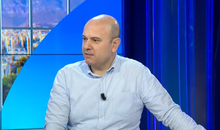
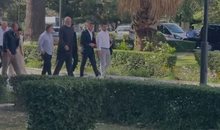
Directors targeted! After Fier and Durrës, Rama arrives in Elbasan
2025-07-09 09:53:57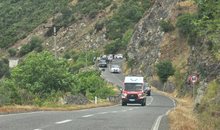
Name/Identification of the 23-year-old found dead near Shkopet Lake
2025-07-09 09:42:34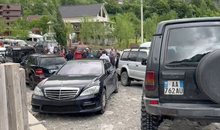
IKM action in Theth, residents come out in protest
2025-07-09 09:34:54
Reasons why the EU has not imposed new sanctions against Russia
2025-07-09 09:18:35
DW: Online scams increase human trafficking
2025-07-09 09:01:29

Reported missing by his father, 23-year-old found dead near Shkopet lake
2025-07-09 08:42:13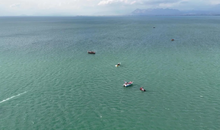

Horoscope, what do the stars have in store for you today?
2025-07-09 08:25:44
Sun and rain, Wednesday with unstable weather
2025-07-09 08:06:58
Posta e mëngjesit/ Me 2 rreshta: Çfarë pati rëndësi dje në Shqipëri
2025-07-09 07:52:02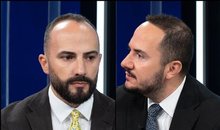

Tabaku: Salianji bore a political cost that no one in Albania has borne
2025-07-08 22:36:15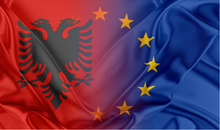


Sekretet për të shijuar verën si një ‘profesionist’
2025-07-08 21:45:06

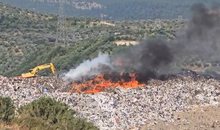
Albania's Waste Crisis: Toxic Smoke and Deep Governance Problems
2025-07-08 21:13:07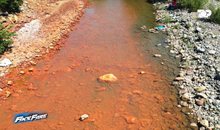
Alarming pollution in Fushë-Arrëz, copper factory waste turns the Fan River red
2025-07-08 21:07:14

Poll/ How do you assess the Prime Minister's intervention in local government?
2025-07-08 20:40:01
28 arrested in Italy and Spain for drug trafficking, including an Albanian
2025-07-08 20:24:14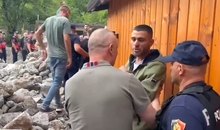
Residents clash with police in Theth: We are on our land
2025-07-08 20:11:41
Death of 27-year-old in Lipjan, Osmani: To be investigated independently!
2025-07-08 20:06:52
Trump promises US will send more weapons to Ukraine
2025-07-08 19:54:25
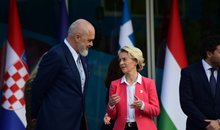
EU targets health, education, police and cadastre as areas of corruption
2025-07-08 19:23:34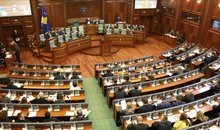
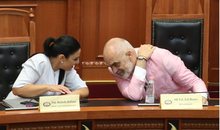
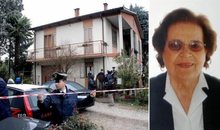
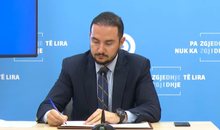

Salianji after his return: I did not oppose for functions, but for vocation
2025-07-08 18:23:15
Will he run in the 2029 elections? Here's how Salianji answers
2025-07-08 18:16:09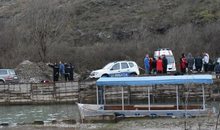
Boat captain drowns after diving into water to save two tourists in Shkodra
2025-07-08 18:05:12
Salianji from the DP headquarters: I brought a drug trafficker to justice
2025-07-08 18:03:26
After Fier, Rama "landes" in Durrës, dismissals expected
2025-07-08 17:53:32
Ervin Salianji arrives at the blue headquarters, welcomed by supporters
2025-07-08 17:45:12
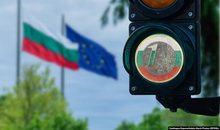
EU approves final steps for Bulgaria's Eurozone membership
2025-07-08 17:43:06

Zhupa after Salianj's release: Inspiration for every opposition member
2025-07-08 17:19:39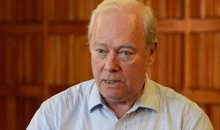
Actor David Killick passes away
2025-07-08 17:09:23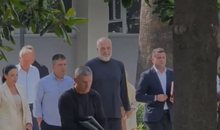


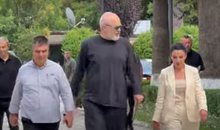
Threatened with dismissals, Rama arrives at the Fier municipality
2025-07-08 16:39:19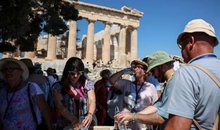
Extreme temperatures temporarily close Acropolis in Greece
2025-07-08 16:30:34

A plot of cannabis is discovered in Mazha, Kruja
2025-07-08 16:13:48

Republika Srpska allocates additional 22 million euros for lobbying in the US
2025-07-08 15:52:04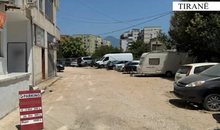

Spices that protect you from mosquitoes!
2025-07-08 15:30:03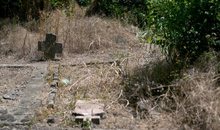

Accident on the Vlora-Qeparo axis, one injured
2025-07-08 15:11:52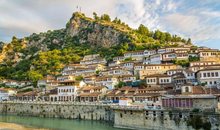
Berat, 17 years part of UNESCO's world heritage
2025-07-08 15:03:30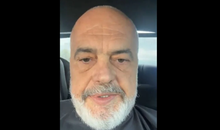
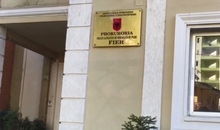

Cost of living increases, inflation rises to 2.4% in June, driven by food
2025-07-08 14:29:54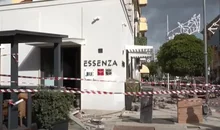
VIDEO/ Restaurant roof collapses in Italy, one victim and ten injured
2025-07-08 14:18:44
Requested release from cell, Supreme Court leaves Veliaj in prison
2025-07-08 14:07:41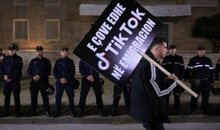
TikTok shutdown/ Austrian media: Rama benefited politically from the app ban
2025-07-08 13:48:25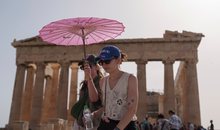
Acropolis temporarily closed due to heat
2025-07-08 13:31:09



Salianj's release/Berisha: He was politically condemned by Rama and Xhafa!
2025-07-08 13:00:13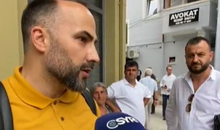

Knife attack on Peshkopia Boulevard
2025-07-08 12:44:10
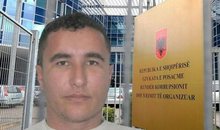
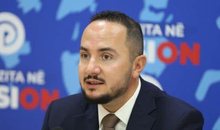
Fier Court decides on the conditional release of Ervin Salianj
2025-07-08 12:15:23
Cost of living increases, inflation rises to 2.4% in June due to food
2025-07-08 12:00:16
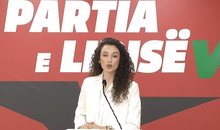
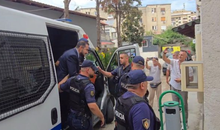
Requesting conditional release, Ervin Salianji arrives at the Fier Court
2025-07-08 11:16:36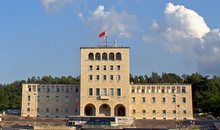
The first phase of university applications begins today
2025-07-08 11:10:52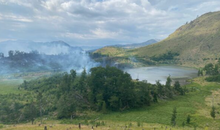
Fire in Lura, flames endanger the National Park
2025-07-08 10:53:43
Trump warns of 35% tariffs on Serbia and 30% on Bosnia and Herzegovina
2025-07-08 10:37:32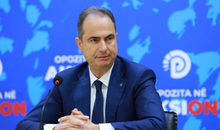
Thethi rooster and the dung cock
2025-07-08 10:24:01
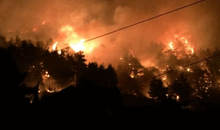
Fire in Dukat endangers Llogara National Park
2025-07-08 10:01:39
International drug search: 36-year-old arrested in Durrës (NAME)
2025-07-08 09:50:48
Thethi, tourists "criticize" modern trend
2025-07-08 09:39:54
Fire on Mount Dukat still active, Llogara National Park at risk
2025-07-08 09:28:12
Veliaj's appeal to be heard today in the High Court
2025-07-08 09:16:02
"Bad sign for democracy"/ Parliament neglects reporting by institutions
2025-07-08 09:04:56
Today's hearing at the Fier Court, Salianji requests conditional release
2025-07-08 08:56:39
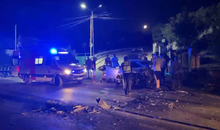
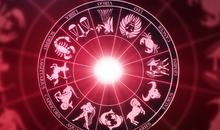
Horoscope, what do the stars have in store for you today?
2025-07-08 08:16:19
Weather forecast/ How temperatures will vary throughout the day
2025-07-08 08:02:37
Morning Post/ In 2 lines: What mattered yesterday in Albania
2025-07-08 07:48:30
